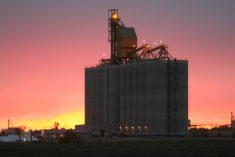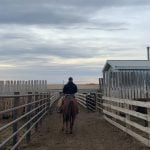In the tradition-bound world of farming, changing the way things have always been done may require a cultural shift.
An Alberta study on why farmers don’t embrace food safety and environmental improvements found that they worried about the cost, a perceived lack of benefits and a poor fit for individual farms.
Recommendations to improve conservation and promote food safety are known as beneficial management practices, but half the farmers surveyed questioned the practicality of some of these ideas.
Time constraints, lifestyle choices, family commitments, land tenure and security, risk and government policy also affect decisions, said researcher Ross Mitchell during the Alberta Environmental Farm Plan Co. meeting in Calgary last month.
Read Also

Malting barley exporters target Mexican market
Canada’s barley sector is setting its sights on the Mexican market to help mop up some of the lost demand from China
“The financial aspect is an important driver, but the social aspect has been set aside. It isn’t about the money,” he said.
Other farmers prefer to wait until a new idea has been proven by someone else, said Marke Ambard, who helped Mitchell interview Alberta farmers.
“Some people preferred to watch their neighbours,” he said.
Mitchell and Ambard also found many farmers held firm ideas about the right and wrong way to do things and for many, these practices were ingrained in farming culture. For example, most said they believe zero tillage is the right way to farm.
When asked about food safety and conservation practices, farmers said new ideas should be practical, better than what was used before and conform with producers’ ideas about the right way to farm.
Many admitted they were not sure how to define food safety. For many, food safety practices were initiated because of government regulations and many people are still in the early stages of adopting changes.
Farmers lamented the loss of extension experts to help them work through new practices.
At the same time, they say those teaching the program should not limit themselves to a certain set of practices, such as conservation improvement. Since farmers are a diverse group, programs need to provide a variety of approaches.















